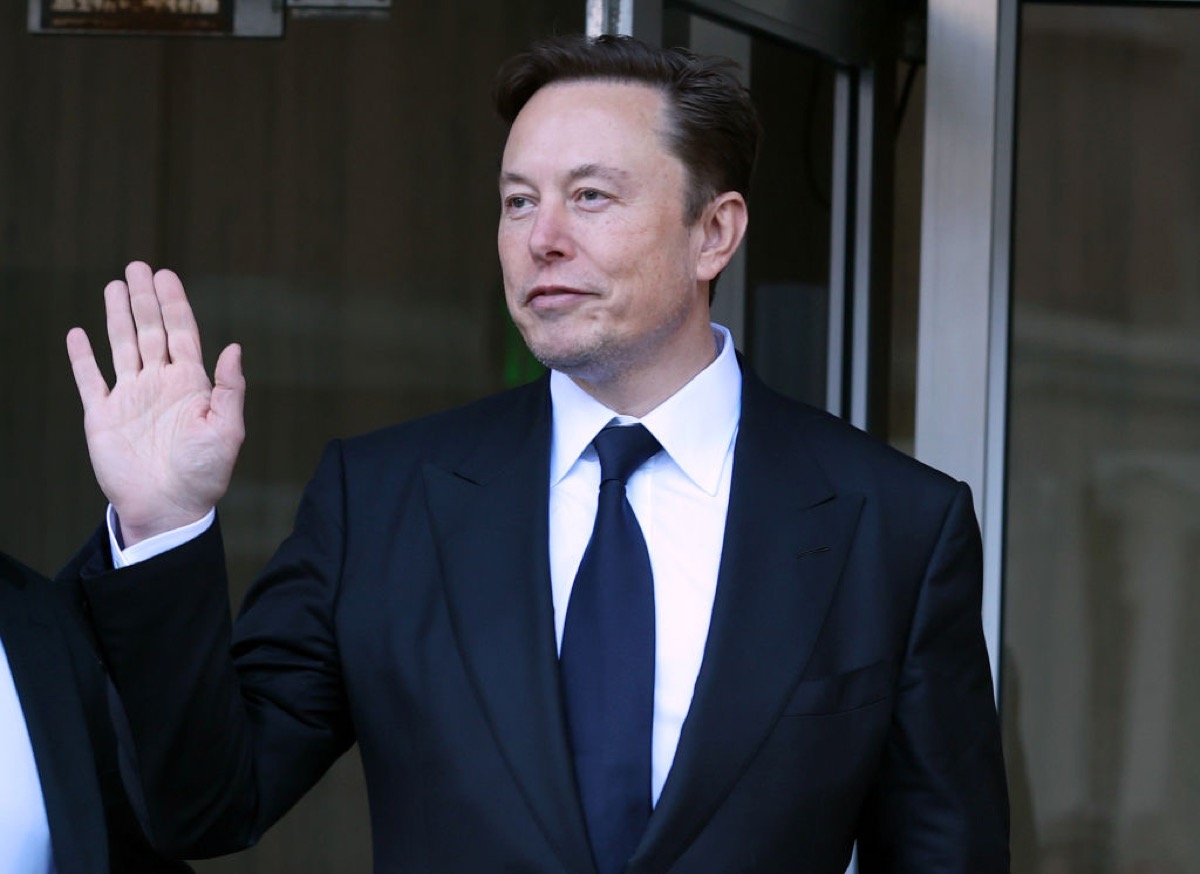For Once, I Empathize With Elon Musk

Earlier today, The Wall Street Journal published an article claiming that Elon Musk does ketamine. That’s no surprise—rich people doing recreational drugs is hardly news—but the article included one significant detail: Musk apparently microdoses ketamine to treat his depression, and takes full doses at parties.
After the article came out, Musk tweeted out this statement, which he later deleted:
Depression is overdiagnosed in the US, but for some people it really is a brain chemistry issue. But zombifying people with SSRIs for sure happens way too much. From what I’ve seen with friends, ketamine taken occasionally is a better option.
Oh, Elon. It sucks that WSJ wrote about your personal life, and for once, instead of spreading transphobia or banning speech you don’t like, you could have been a force for good.
First, let’s get the facts straight on ketamine. Usually, the drug is used as an anesthetic in humans and animals. It’s also a party drug. A low dose induces a relaxed, floaty feeling with the potential for hallucinations, while a higher dose can put a user into a dissociative state (a.k.a. the infamous K-hole).
Ketamine is also used as a treatment for depression. In 2019, the Food and Drug Administration approved a ketamine nasal spray, although it’s tightly regulated and only to be used alongside other, more standard depression medications. There are also multiple clinical trials exploring the use of ketamine, psilocybin, and LSD as depression treatments. Some of these trials involve controlled sessions that are supervised by a medical professional; others involve microdosing, or the practice of taking doses too small to produce hallucinations. Michael Pollan, Ayelet Waldman, and other writers have written about the therapeutic effects of hallucinogens.
How do I know all this? Because I’ve looked into these therapies myself. As many people with depression know, it can be staggeringly hard to find the right antidepressant. The search can last years, and the drug you finally land on can be far from perfect. It might treat some symptoms but not others, or come with unwelcome side effects. It’s no wonder that so many people are exploring alternatives like microdosing.
When the WSJ article came out, Musk had an unprecedented opportunity to be honest and frank about some of these issues. Instead, he came out with a mashup of all the most offensive myths about depression.
First, there’s his claim that depression is overdiagnosed. For my birthday this year, I want this myth to finally die. It’s appalling enough when people without mental health issues spout it, because the subtext is always that people with depression just need to toughen up. (I myself was told I was being “melodramatic” at a time when I was at my absolute lowest. I grew up in a culture that didn’t believe in mental health treatment, and it almost cost me my life.) As bad as this myth is when it comes from onlookers, though, it’s extra ghoulish when someone with depression repeats it. I suppose that if Elon Musk has depression symptoms, it’s a legitimate brain chemistry issue, but if you have symptoms, he’d say you’re just a whiner.
Secondly, there’s his comment about SSRIs like Zoloft or Prozac “zombifying” their users. SSRIs aren’t sedatives. That’s not at all how they work. I guarantee you’ve interacted with someone who was taking SSRIs, and chances are, that person was more upbeat and engaged than they would have been in the depths of depression. Yet the myth that antidepressants “zombify” people has persisted for decades. In this instance, the claim is extra hilarious, considering ketamine’s reputation for putting people in trance-like states.
Finally, Musk equates taking small doses of ketamine under a doctor’s care with casually doing a bump with friends. But they aren’t the same thing. Dear god, those two practices aren’t the same thing at all! I shouldn’t have to say this, but trying to treat depression on your own, with recreational drugs, can make things infinitely worse than they were before.
At its best, treating depression is a nuanced, multi-pronged process that takes some time to pay dividends. At its worst, it can be a grueling ordeal, filled with skeptical bystanders, medical red tape, high costs, and pharmaceutical dead ends. Musk could have used a tasteless WSJ exposé as a chance to do some good in the world. Instead, true to form, he decided to do as much harm as possible.
If you’re experiencing severe symptoms of depression or are in crisis, you can speak with a trained listener by calling 988, or text HELLO to 741741.
(featured image: Justin Sullivan/Getty Images)
Have a tip we should know? tips@themarysue.com